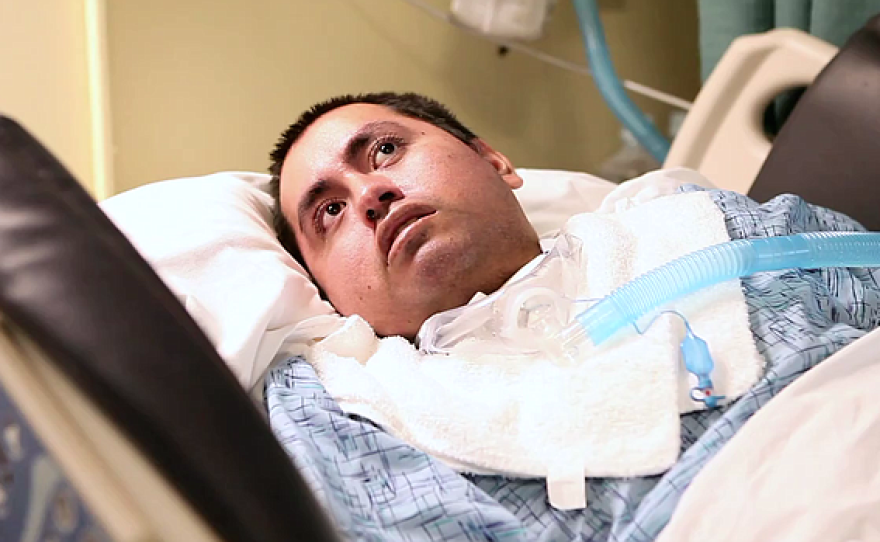
It took 16 years and a binational team of government officials and citizens to identify him, but finally the family of a man on life support in Coronado has some answers.
Although authorities have located the family of a man who had been known as 66 Garage, they’re not releasing details. Enrique Morones, director of the nonprofit advocacy group Border Angels, confirmed that the man is a Mexican national but didn’t say much else.
“We know where he’s from, his name and all that, but that’s all private,” said Morones, who helped assemble the group that sought Garage’s identity. The Mexican Consulate is working to physically reunite the family, but “the details of the get-together will also be private.”
Garage, who looks to be in his 30s, was injured in a traffic accident east of San Diego in 1999, possibly when he was illegally crossing into the United States. He cannot speak or react to his environment because of his injuries. He has breathing and feeding tubes, and lives in Villa Coronado Skilled Nursing Facility, a part of Sharp HealthCare.
The search for his identity started when inewsource reported on the case more than a year ago as part of an investigation into the more than 4,000 patients living on life support in California.
That investigation, called “An Impossible Choice,” profiled Garage and other patients in similar condition.
Ed Kirkpatrick, director of Villa Coronado, also declined to elaborate on Garage’s origin or future.
“We’re all excited that all the efforts to find this man have been successful,” he said. He directed all other comments to Sharp HealthCare’s public relations department.
Tom Hanscom, a Sharp spokesman, said that now that Garage has a name the rules have changed. Federal patient privacy laws are now in effect.
“When we worked with inewsource in putting out the story of this patient, we were able to do so because it was in the patient’s best interest,” he said.
The hope was that the publicity might lead to Garage’s name and his family. Publicizing Garage’s story in Mexico was part of the early plans to find his family, Morones said.
Morones said he received a call from the Mexican Consulate on Friday telling him Garage had been identified.
“I was very excited, very, very excited,” he said. “It brought tears to my eyes, and all I could think was ‘si se puede’ and it was a team effort.”
Biometrics
When Morones began the search in early 2015, one of the first people he reached out to for help was Michael Fisher, who was then the national head of the Border Patrol.
Agents took biometric measurements of Garage — things like facial scans and fingerprints — and found an old match. That match had a name and led them to a family in Mexico.
Eventually, the consulate arranged for a DNA test, and three months later it received the results.
But with a name came stricter rules about what Sharp and others involved in the case can say. Specifically, the hospital must now follow the Health Insurance Portability and Accountability Act, which protects patients’ information from unauthorized disclosure.
“Now that we have found this patient’s identity, the HIPAA laws fall back into effect and we can’t discuss particulars of his case,” Hanscom said.
Still, at least some of the people around Garage now know more about him. “His Sharp caregivers can now address him by name,” he said.
What happens now?
It’s unclear what, if anything, will change for Garage now that his identity is known and his family is aware of his situation.
Care for individuals in similar long-term treatment costs Medi-Cal, California’s health insurance program for the poor and disabled, about $700 a day.
Anthony Cava, a spokesman for the California Department of Health Care Services, wouldn’t comment on care provided to specific Medi-Cal recipients. But in an email, he said all states are required to provide emergency services to “undocumented individuals who are otherwise eligible for Medi-Cal.”
“California also provides non-federally mandated services to undocumented individuals, including nursing facility care services,” he said. Patients would still have to be eligible for Medi-Cal for the facilities to receive reimbursement.
Morones hopes that this is the beginning of greater cooperation to identify people who have died or gone missing at the border.





